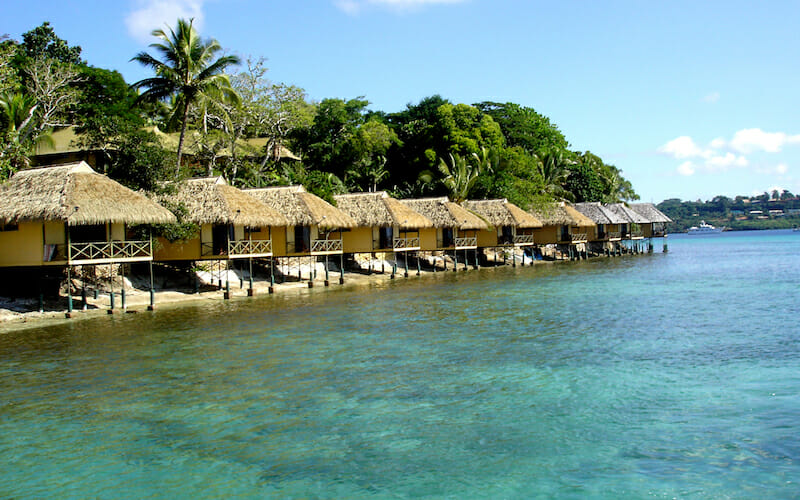
Pacific Moves: China, Vanuatu and Australia
Washington’s vigilant deputy, doing rounds on the beat in the Pacific, has been irate of late. The central issue here is the continuing poking around of China in an area that would have been colloquially termed in the past “Australia’s neighbourhood.”
There have been no formal proposals, but the Australian press is agog with reports that the Chinese are instigating the first steps into what might be a military-build up on the island nation of Vanuatu. “A base less than 2,000 kilometres from the Australian coast,” goes an alarmed entry in the Sydney Morning Herald, “would allow China to project military power into the Pacific Ocean and upend the long-standing strategic balance in the region, potentially increasing the risk of confrontation between China and the United States.”
The wily inscrutability of oriental thinking as both motif and fear makes its customary appearance. As the paper continues, “Multiple sources said Beijing’s military ambition in Vanuatu would likely be realised incrementally, possibly beginning with an access agreement that would allow Chinese naval ships to dock routinely and be serviced, refuelled and restocked.” Such cheek; such audacity.
As these developments gather pace, few doubts could be had about Australia’s diminishing credentials in the region. A part-time bully and part-time moralist is getting its comeuppance with a rival capitalising on the ledger of history. Either the states in the region are deemed insuperable problems, or they are regarded as repositories of rubbish.
One trend is clear: the Pacific states seen as miniature pockets of darkness and squalor, objects of humanitarian rhapsody and moral uplift for Australian policy makers. The Pacific region, towards that end, is the largest recipient of Canberra’s development assistance.
Take the evocations of Shadow Minister for Defence, Richard Marles, delivered at the Lowy Institute in November last year. “I’ve seen refugee camps in Africa, slums in Bangladesh. But the worst human circumstances I’ve ever witnessed are here on the islet of Betio [in Kiribati].” Marles would prefer moving beyond what he regards as Australia’s “holding pattern policy in the Pacific.”
Relations between Vanuatu and Australia have had their share of squabbles. Recipients of aid and those ennobled by their vulnerabilities are bound to take issue with the calculating donor. In April 2012, Vanuatu’s Prime Minister Sato Kilman travelled with his entourage from Port Vila to Sydney en route to Israel. In transit, they were told to complete immigration procedures.
On passing through customs, Kilman found himself without his private secretary, Clarence Marae. Marae had caught the eye of the authorities, who had her arrested and charged for conspiracy to defraud the Commonwealth. In Kilman’s furious words on returning to Vanuatu, such an action was “kidnap and a breach of diplomatic protocol.”
The response from Australia’s Department of Foreign Affairs and Trade was one of “regret that it was necessary to make the arrest during Prime Minister Kilman’s transit. All possible measures were taken to ensure it was carried out in such a way that it was respectful of (Mr. Kilman’s) position and the need to protect his dignity.”
Retaliation was not slow in coming. The Australian Federal Police operating in Vanuatu were given the heave-ho. They had been there ostensibly to conduct training for their Vanuatu counterparts (imperial missions are taxing) pursuant to an aid program worth a touch under $10 million. In May, all 12 officers based in Port Vila flew home.
History hangs heavily, and uncomfortably, over Australia’s regional role towards the smaller states, despite the confident assertion by foreign minister Julie Bishop that “Australia is Vanuatu’s strategic partner of choice.” The Australian state, even in proto form, was already busy capturing, luring and terrifying inhabitants of the Pacific region into an indentured labour system. From the 1860s till 1903, some 60,000 indentured labourers found their way to Australia from Vanuatu (then the New Hebrides), Solomon Islands and Papua New Guinea. Their destination would become the stuff of painful legend: the cane farms of north Queensland.
China now finds itself in an enviable situation – and it doesn’t even need to pursue such invidious practices as “blackbirding” to convince those it woos. Australian Prime Minister Malcolm Turnbull, on the other hand, sees tying military build-up to that of development as disruptively concerning. “We would view with great concern the establishment of any foreign military bases in those Pacific Island countries and neighbours of ours.” Australia would duly fail in its remit to protect US interests.
Colonial projects do, to that end, breed suspicion, concern and angst. Rival contenders cannot be tolerated. Australia’s historical mission in the Pacific remains tangled with the briefs and missionary ethos of the Unite States. But Canberra has its own specific concerns on how best to counter the infrastructure magic and lure of Beijing’s promises. In the final analysis, it may be incapable of so much competing as accommodating. The sun on Australia’s imperial mission is setting.

